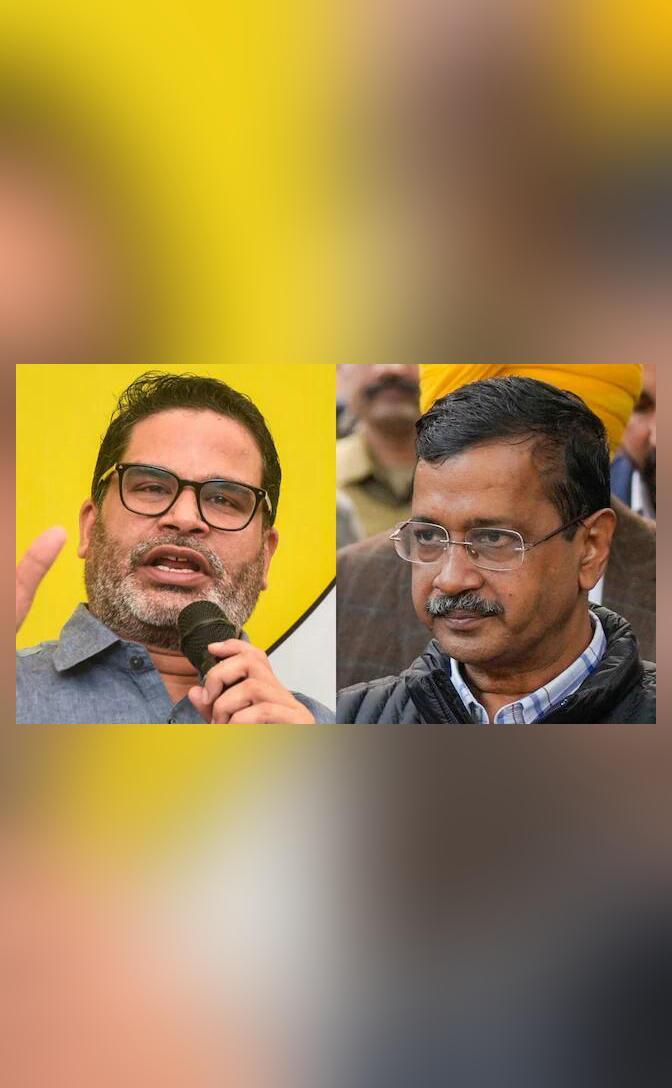
Prashant Kishor Lists Reasons Why Kejriwal & AAP Lost in Delhi Elections
The recent Delhi Assembly elections saw a shocking upset, with the ruling Aam Aadmi Party (AAP) losing power after a second consecutive term. The party’s leader, Arvind Kejriwal, resigned as the Chief Minister of Delhi after his party failed to win a majority. The defeat has sparked a lot of debate and analysis, with many trying to understand what went wrong. One person who has shed some light on the reasons behind AAP’s defeat is Prashant Kishor, a well-known politician and former political strategist.
In an interview with News18, Kishor laid out his thoughts on why Kejriwal and AAP lost the Delhi elections. According to him, Kejriwal’s decision to resign as Chief Minister after being granted bail in a liquor policy case was a “big strategic mistake”. Kishor believes that if Kejriwal had resigned immediately after being arrested, it would have been a better strategy.
“The moment he was arrested, he should have resigned, not taken bail. That would have given him a moral high ground, and people would have empathized with him. But instead, he took bail, and that hurt his credibility,” Kishor said.
Kishor also pointed out that the 10-year anti-incumbency factor played a significant role in AAP’s defeat. “AAP was in power for five years, and then there was a two-year hiatus before they came back to power again. So, there was a 10-year anti-incumbency factor that was working against them,” he explained.
Another factor that Kishor believes contributed to AAP’s defeat was Kejriwal’s fluctuating stance on joining and exiting the INDI Alliance. “Kejriwal’s stance on the INDI Alliance hurt his credibility. He was seen as someone who was not willing to take a stand, and that affected his party’s image,” Kishor said.
Kishor also criticized AAP’s campaign strategy, saying that it was too defensive and did not focus enough on the party’s achievements. “AAP’s campaign was too defensive, and they did not focus enough on their achievements. They should have gone on the attack and highlighted their successes,” he said.
In addition to these factors, Kishor also pointed out that AAP’s failure to improve the lives of Delhi’s citizens was a major factor in the party’s defeat. “AAP was in power for five years, and they did not deliver on their promises. They did not improve the lives of Delhi’s citizens, and that hurt their image,” he said.
Kishor also believes that AAP’s move to introduce the mohalla clinics was a mistake. “The mohalla clinics were a good idea, but they were implemented in a haste. There was no proper planning, and that led to a lot of criticism,” he said.
Another factor that Kishor believes contributed to AAP’s defeat was the party’s failure to win over the minority community. “AAP did not have a strong outreach program in the minority community, and that hurt them. The minority community is a crucial segment in Delhi, and AAP failed to win them over,” he said.
Kishor also criticized AAP’s use of social media, saying that it was too aggressive and did not focus enough on constructive engagement. “AAP’s social media campaign was too aggressive, and it did not focus enough on constructive engagement. They should have used social media to promote their achievements and connect with voters,” he said.
In conclusion, Kishor believes that AAP’s defeat in the Delhi elections was due to a combination of factors, including Kejriwal’s resignation after being granted bail, the 10-year anti-incumbency factor, fluctuating stance on the INDI Alliance, defensive campaign strategy, failure to deliver on promises, mohalla clinics, and failure to win over the minority community.
Overall, Kishor’s analysis provides some valuable insights into what went wrong for AAP in the Delhi elections. While AAP has a lot to learn from its defeat, it is clear that the party has a lot of work to do to regain the trust of the people of Delhi.
Source:





